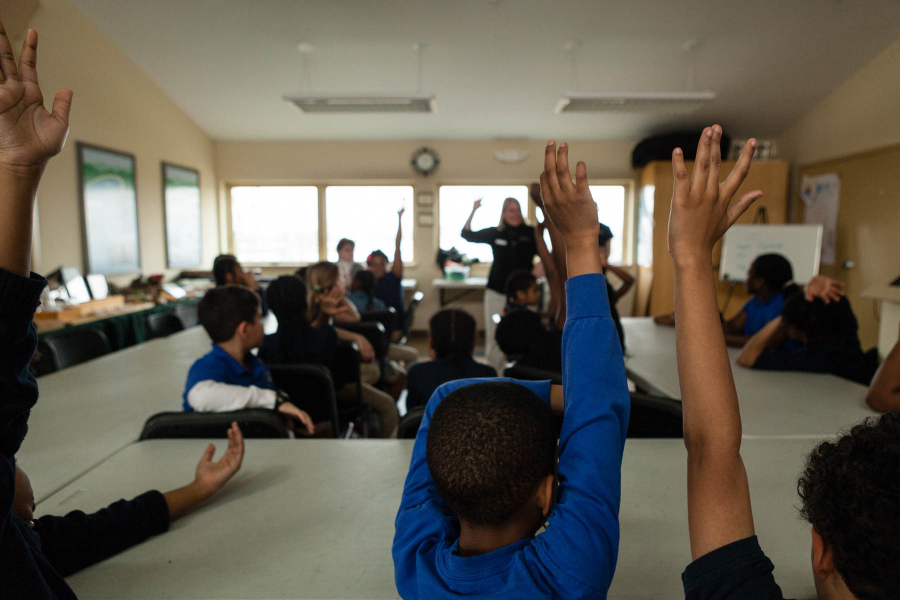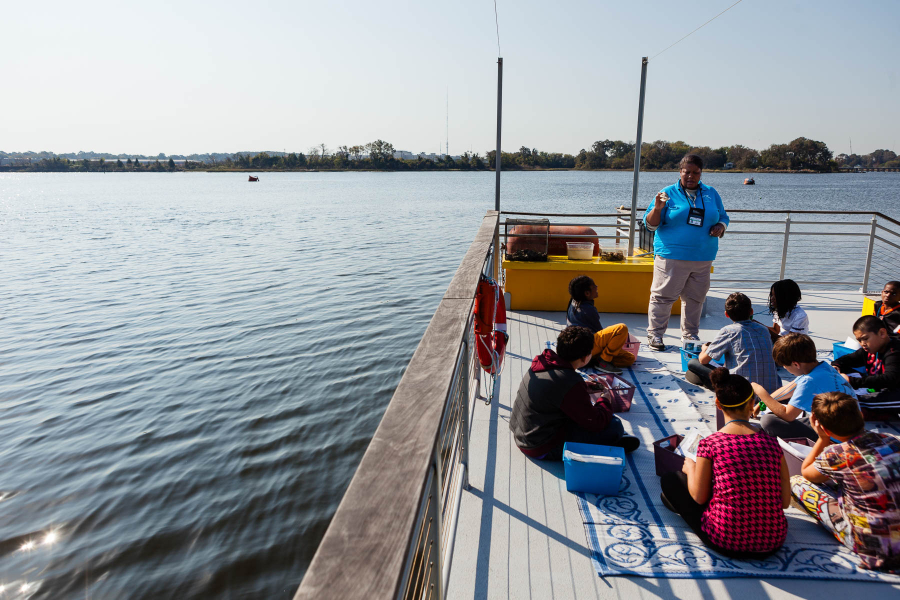Lingering effects of COVID-19 disrupt environmental education
Chesapeake Bay Program updates two outcomes under its Environmental Literacy Goal

Talk to any teacher in the United States and they will tell you that schools have yet to fully recover from the effects of the COVID-19 pandemic. Illnesses, teacher turnover and remote education have led to significant learning loss that schools are still grappling with. Data collected by the Chesapeake Bay Program show that environmental education, like other school subjects, may have taken a hit due to these changes.
In 2015, 2017, 2019 and 2022 we distributed a survey to Local Education Agencies (LEAs), or school districts, across the watershed to understand their progress toward environmental literacy. One key measurement is the degree to which schools are offering action-oriented learning opportunities related to a students’ local watershed, known as Meaningful Watershed Educational Experiences (MWEEs). MWEEs serve as the backbone of local environmental education, helping students understand their impact on waterways and wildlife so that they can be better stewards of the environment in the future.
According to the 2022 survey, there has been a drop in system-wide MWEEs offered at elementary, middle and high schools. At the elementary school level, 27% of responding LEAs reported providing system-wide MWEEs to at least one grade level (down from 35% in 2019). For the middle school level, 28% reported providing system-wide MWEEs to at least one grade level (down from 39% in 2019). And for high school level, 22% reported providing system-wide MWEEs in at least one required course (down from 35% in 2019).
For the high school data, which showed the largest decrease, the trend may also be due in part to a change in how the question was asked in the survey. However, experts still point to the impacts of the COVID-19 pandemic as the primary reason for a drop in classroom MWEEs.

The same survey also tracks the degree to which schools are prepared to integrate environmental literacy into their classrooms. The survey asked LEAs if school districts are “well-prepared”, “somewhat prepared” or “not prepared” to put a comprehensive and systemic approach to environmental literacy in place.
Seventeen percent of the respondents self-identified as well-prepared, 56% self-identified as somewhat prepared and 27% self-identified as “not prepared”. The percentage of well-prepared districts in the watershed was lower in 2022 than in 2019 by 3%, after increasing for three consecutive years. The percentage of somewhat prepared schools districts increased 3% and the percentage of not prepared districts stayed the same.
The level of environmental education opportunities within the watershed has grown tremendously in the watershed over the past 40 years, thanks to Chesapeake Bay Program partners. The partnership will continue to help schools recover from the COVID-19 pandemic and teach students about clean water, wildlife conservation and pollution. Partners such as the National Oceanic Atmospheric Administration provide funding and professional development opportunities—including the Bay Watershed Education and Training Program (B-WET)—that help teachers integrate environmental education into their classroom.
To learn more about the development and funding of MWEEs and other Bay-specific education, visit www.BayBackpack.com

Comments
There are no comments.
Thank you!
Your comment has been received. Before it can be published, the comment will be reviewed by our team to ensure it adheres with our rules of engagement.
Back to recent stories